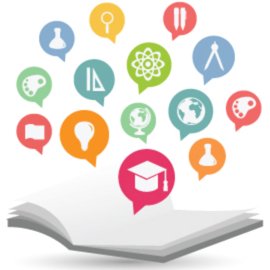
Literacy
This study is the first of a UIE launched series entitled "Literacy Matters". This issue, which looks at the relationship between literacy and HIV prevention education, is the result of the work carried out by UIE in collaboration with the ADEA...
Document format
Study
Year
2007
Considering that literacy is a fundamental right for both men and women, how can we explain why 62% of African women are refused the right to literacy training? On current trends, nearly 800 million adults, including a high proportion of women, will...
Document format
Book
Year
2011
Literacy – the ability to read and write – is recognized as one of the most fundamental of core skills contributing to academic achievement, lifelong learning and sustainable development. In many African countries, however, literacy achievement in...
Document format
Book
Year
2012
This handbook of case studies on book promotion in Africa is a compilation of various types of experiences from within SSA countries that have been involved in promoting and encouraging reading. Set within the goals of sharing good practices across...
Document format
Book
Year
2010
IThis document locates the development of National Qualifications Frameworks (NQF) within the perspective of lifelong learning. It outlines the experiences and stages of development with the NQF processes in four countries (Botswana, Kenya, Namibia...
Document format
Conference paper
Year
2006
This paper explores the extent to which the varied literacy provisions in Uganda are offering a holistic lifelong learning perspective examining (i) the program structure and its link to continuing education, (ii) the current methodology and its...
Document format
Conference paper
Year
2006
In 2005, Action Aid and the Global Campaign for Education undertook the largest-ever survey to systematise experience of effective methods in adult literacy and the cost of quality literacy programmes: 67 successful literacy programmes in 35...
Document format
Conference paper
Year
2006
Many people would think that the notions of literacy and lifelong learning have nothing in common. In fact, most people - including many education specialists - think of literacy as a short, remedial, non-formal educational provision for poor youth...
Document format
Conference paper
Year
2006
The policy discourse of Lifelong Learning was introduced in the international scene in the seventies with the Faure Report issued by UNESCO in 1972. Since then, the discourse of lifelong learning has been interpreted in different ways Briefly...
Document format
Conference paper
Year
2006
IThis study discusses different modes of building capacity for literacy/non-formal education and focuses specifically on the roles and functions of the educators in the countries under examination (South Africa, Botswana and Namibia). The...
Document format
Conference paper
Year
2006

